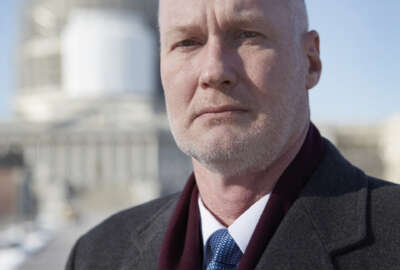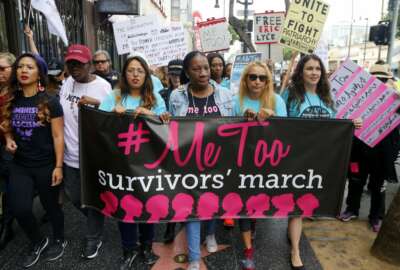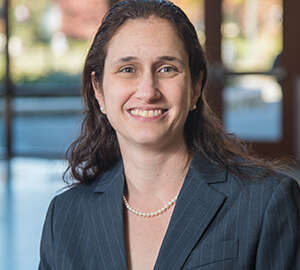
‘Me Too’ movement unmasks need for culture change at DoD
The Me Too movement has women in different careers talking about sexual harassment and assault. The national discussion did not leave out the military, unmasking...
Subscribe to Federal Drive’s daily audio interviews on iTunes or PodcastOne.
The Defense Department has made some progress in coping with sexual harassment and abuse in the armed services, but the “Me Too” movement has more members talking, unmasking just how weak the system has been.
Since 2013, DoD has worked under a congressional mandate to develop comprehensive policies. But those policies still lack a few essentials.
The requirements pushed the development or improvement of three elements: prevention training, mechanisms for reporting sexual abuse and harassment, and mechanisms for resolution or prosecution. Brenda Farrell, director of defense capabilities and management issues at the Government Accountability Office, said the mandate was similar to those proposed by the Centers for Disease and Control.
Farrell said the military services have in the past dealt mostly with the prevention factors and not the others.
“Risk and protective factors are conditions or behavior that can place an individual in a position of sexual violence victimization,” she said on Federal Drive with Tom Temin. “None of the services or the office of the secretary of defense level addressed the risk, or protective factors.”
Farrell was not the only one to mention the need for a change in the system. Don Christensen, retired Air Force colonel and former chief prosecutor, said the problem is not necessarily in the leadership alone, but starts at the lowest level — military academies — and a lack of belief on the command level.
“One of the weaknesses of our system is the prosecutor isn’t the one that makes the decision,” Christensen said. “So cases only came to my level if they were wrought by the command system.”
In other words, if someone in a lower command did not believe a victim, or brushed it off, many times those cases were forgotten.
“What I don’t think a lot of people understand is how unlikely it is that an allegation of sexual assault in the military will be prosecuted,” he said. “The Air Force has prosecuted [only] a few and they’ve resulted in acquittals. So it shows that there [is] a systematic problem of accountability.”
In 2016, Christensen said the Defense Department received 4,600 reports of sexual abuse and assault. Only 389, less than 2 percent, of those cases were prosecuted.
“You’re much more likely to be retaliated against than you are to see your attacker prosecuted,” he said. “That’s one of the reasons I so strongly believe we should change the process and have prosecutors make those decisions.”
Implications
Sexual harassment and assault in the workforce is not a new concern. Since women began entering the workforce and taking on the same positions as men, they have had a more difficult time being taken seriously.
Nora Bensahel, a distinguished scholar in residence at American University, told Federal News Radio that it took her years to rebuild her confidence after her first appearance at the Pentagon as an analyst.
“It was the first time I was briefing a general officer of any sort. That’s a very big deal in your professional career if you aspire to be a military analyst,” she said. “I had prepared extensively, I thought I was ready for any question that he could ask me, but I wasn’t prepared for the fact that he started by asking me how old I was.”
The next question: What are your qualifications?
“I don’t want to suggest that [this] experience was anywhere near the experiences of my colleagues who’ve been physically assaulted,” she said. “Those things are so commonplace and I don’t think get mentioned in the broader conversation that I think we’re having now to try to understand the pervasiveness of not just the assault factor, but also the day-to-day harassment that wears women down and interferes with their ability to do their job.”
Recently some 200 women either in or connected to the military signed an open letter to the national security community on sexual harassment — Bensahel was one of them.
She said looking back, many women don’t trust the system and this is why they often keep their mouths shut after an incident occurs. There was a larger chance the authorities wouldn’t believe the victim and would take the side of the attacker.
“Those were just the things that you had to put up with,” Bensahel said. “You know, we would often talk with each other and share these stories, but we’d often just laugh about it because what else could you do?”
Bensahel said one of the most powerful things about the movement is that the women can finally talk. It opens the doors to conversation and acknowledgement of the effects sexual harassment and assault have had on the federal workforce and beyond.
The letter has already made some impact, including statements issued by the State Department and other agencies about new no tolerance policies for sexual harassment and assault. The agencies have also been allocating more resources to prevention efforts and the offices of the organizations that deal with the problem.
“I am very gratified to see individual people just having these conversations [and] to be able to share those experiences,” Bensahel said. “And for other women, but also men who are generally supportive of women, to understand the pervasiveness of the problem so that they can act in different ways.”
Recommendations
“I think one of the first things you need to change is the culture … you need to make sure that every cadet and every midshipman knows that each person there is valued as a member of the team,” Christensen said. “The second thing is making it clear that people are going to be held accountable.”
GAO released a report in December 2017 outlining more actions DoD can take to help mitigate the growing problem.
The report recommended DoD to implement a new policy on sexual harassment including:
- Implementing CDC principles for prevention,
- Mechanisms for anonymous reporting,
- Comprehensive data elements,
- Standard definitions for reporting sexual harassment incidents, and
- incorporate long-term, results-oriented strategy.
DoD agreed to the recommendations.
“We’re encouraged if they get the new sexual harassment policy out this year, as well as the continuum of harm (addressing non-physical harassment), they should be on track,” Farrell said.
Copyright © 2025 Federal News Network. All rights reserved. This website is not intended for users located within the European Economic Area.
Steff Thomas is a digital editor at Federal News Network.
Related Stories

Don Christensen: Military academies too deal with sexual harassment, retaliation





